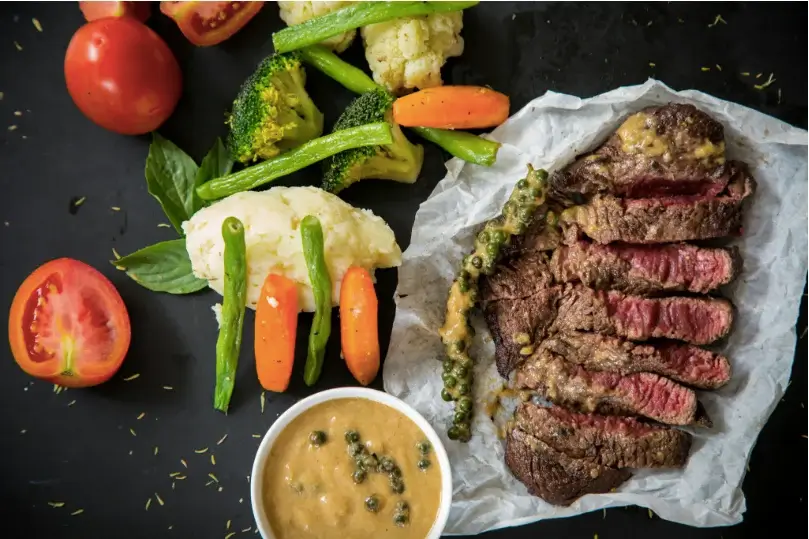Introduction: The Importance of Protein a Day Intake
It’s common to refer to Protein a day as the building block of life. It is essential for many body processes, such as immune system performance, muscle development and repair, hormone synthesis, and enzyme functioning. Our bodies cannot operate at their best if they do not have enough Protein a day.

How to Get 180 Grams of Protein a Day
Understanding Protein Needs Based on Individual Factors
Depending on variables including age, gender, weight, degree of exercise, and general health, an individual’s Protein a day needs might change. More protein is usually required by athletes and those who participate in extreme physical exercise in order to promote muscle development and repair..
Calculating Protein Requirements
You may apply a straightforward formula based on your body weight and level of exercise to find out how much protein you need each day. For sedentary people, the recommended daily intake (RDA) for protein is 0.8 grammes per kilo gramme of body weight. On the other hand, those who exercise regularly or want to gain muscle may require a lot more.
Factors Affecting Protein a Day Intake
Age, muscle mass, metabolism, and fitness objectives are just a few of the variables that affect how much Protein a day you need. It’s critical to take these things into account when calculating your daily protein requirements.
Choosing High-Protein Foods
The first step in achieving your protein objectives is making the appropriate meal choices. There are many plant- and animal-based sources of protein that you may include in your diet.
Animal-Based Sources
Lean meats, chicken, fish, eggs, and dairy products are examples of animal products that are good sources of complete proteins, which are foods that have all nine of the necessary amino acids that our systems need.
Plant-Based Sources
Plant-based protein sources for vegetarians and vegans include beans, nuts, seeds, tempeh, quinoa, edamame, tofu, and soy products. Plant-based proteins might not contain all the required amino acids, however, mixing proteins from other sources can supply them all.
Planning Meals to Meet Protein Goals
You may maximise muscle protein synthesis and encourage satiety by dividing your daily Protein a day intake equally. Make it a point to incorporate some protein into every meal and snack.
Incorporating Protein Supplements
It might be difficult in some situations to get enough protein from whole foods alone. Supplementing with protein might be a practical approach to increasing your consumption.
Types of Protein Supplements
Whey protein, casein protein, soy protein, pea protein, and hemp protein are examples of common protein supplements. Every kind has distinct advantages and rates of absorption.
Considerations When Using Supplements
Even if protein supplements have their uses, it’s important to select premium goods and use them in a diet that is well-balanced. Pay attention to any new substances and any allergies.
Tips for Increasing Protein a Day Intake
You may more efficiently meet your daily protein targets by including protein-rich snacks in addition to your major meals and organising your meal prep in advance. Maintaining an Active Lifestyle for the Best Protein Utilization
Physical exercise and hydration are crucial components of protein metabolism. Maintaining a healthy weight and doing regular exercise can improve muscle repair and protein utilisation.
Monitoring Progress and Adjusting Intake
Monitor your protein consumption and note any changes in your body’s response. Depending on your performance and goals, modify your diet as necessary.
Potential Risks of Excessive Protein Consumption
Although eating too much protein can strain the kidneys and cause dehydration or nutritional imbalances, Protein a day is essential for good health. A balanced diet that includes enough amounts of protein, other macronutrients, and other requirements is crucial.
Conclusion
It is possible to get a daily protein intake of 180 grammes if one plans ahead and makes thoughtful food decisions. You may enhance your general health and fitness objectives by consuming a range of foods high in protein, organising your meals wisely, and taking supplements as needed.
FAQs
Can I get enough protein from plant-based sources alone?
Yes, you can get all the essential amino acids required for optimum health by mixing different plant-based protein sources.
Is it safe to consume protein supplements regularly?
Protein supplements can be safe and helpful for a lot of people, as long as they are taken as prescribed and in conjunction with a balanced diet.
Will consuming more protein help me build muscle faster?
Although protein is necessary for both muscle growth and repair, other important aspects of muscle development include nutrition, consistency, and the intensity of training.
Can I consume too much protein?
Indeed, consuming too much protein can cause renal strain and other health problems. The amount of protein consumed must be balanced with the total nutritional requirements.
How can I tell if I’m getting enough protein?
Evaluating your overall performance, muscle recovery, and energy levels can help determine if you’re getting enough protein in your diet.
You Can Also Visit Here: What is Plant Food?

